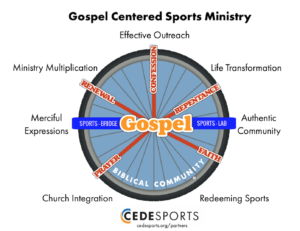Are you discouraged? Often fight discouragement?This past week I spoke with two ministry leaders who were in very different ministry contexts with very different recent circumstances. However, both were discouraged.As I talked with them, what became clear to me is that even though their situations were very different, the reason they were discouraged was very similar.
They both lost sight of their progress.
To show you what I mean, let me use one of those conversations. . This leader told me some of what had been going on in the last couple of months:
He envisioned a particular project for his church and delegated it another leader who carried it out very effectively. This leader confessed, “This is the first time I have ever done this successfully.”
The success of the initiatives around this project impacted several aspects of the church – women’s ministry, youth ministry, and men’s ministry.
Several people, whom they had invested in for some time, made decisions to embrace the gospel and its Hero, Jesus, whom they are following up now.
After he reviewed these items, he said, “My team is smoked and I am tired and disheartened.” As we talked further, he came up with this powerful and poignant image. “I feel like I have given my all to climb this far up the mountain and make it to this ledge. Feeling exhausted and somewhat satisfied, I looked up and I still had so far to go. Totally discouraged me.” After validating his discouragement and how far he had to go, I asked him to reorient his perspective.
“It isn’t time yet to look ahead. Right now, you need to look back.”
I went back over the progress of the last couple of months with some additional words to weave this into a compelling story of all that God had done. I wept as I recalled it to him (For those of you who know me, I know that is no surprise!). It was such a beautiful picture of the awesome works God had done.
It was time to celebrate that progress!
We went over Psalm 145:3-7 and discussed the call there to talk about the great works of God, to meditate on those that we hear from others, and finally to celebrate the goodness of God. To not do so would keep others from joining that celebration and rob God of the glory of his greatness he deserves. So, we did just that. We “sat on that ledge” together and looked back. I went back over how far they had come in those several months and asked him, “If I would have told you a few months ago that this would all happen in the next several months, how would you have felt back then?” He responded, “Ecstatic!” “Well then, let’s be ecstatic now. Don’t look ahead. Look back. Take the next week and celebrate with God. Tell your team of these works and encourage them to think about them and then tell you what else they see.”
His heart got lighter and lighter as he changed his perspective –
from looking ahead to looking back.
There would be a time to start looking ahead and addressing the challenges there. But not yet. Celebrating God’s goodness is designed to energize us for those challenges. However, like these two ministry leaders, most of us don’t seem to do a good job of celebrating God’s goodness. We forget the progress in our frantic pace. We get mired in the challenges and pain of the past. We may focus on the future out of fear of getting caught up in that past. Or we celebrate our “goodness” rather than God’s. Any of these keep us from being energized by celebrating the greatness of God’s works and his goodness in including us in them. My advice – the next time you get discouraged, sit "on the ledge" with our Hero and look back and remember. Think back to where you used to be. Do this with Jesus and some good friends. If you can't look back to that place because of the "clouds" blocking your view, ask God to clear away the clouds. Ask others to tell you what they see. However you get there, remember where you used to be and put that perspective with where you are now. See how far God has brought you. Celebrate his goodness in giving you such progress. It will energize you for the journey ahead, no matter how daunting it may appear.


 The Covid 19 pandemic has certainly been tough on sports ministers. Some that I personally work with, have had to take different roads in the ministry of the church such as: media work, “Cares Act” guru helping the church get two or more months of salaries, or facing the reality of being reduced to only part time. Your situation might be similar to these. There are many unanswered questions ahead as we wonder how school is going to happen, and if we can restart our ministries without compromising safety.
The Covid 19 pandemic has certainly been tough on sports ministers. Some that I personally work with, have had to take different roads in the ministry of the church such as: media work, “Cares Act” guru helping the church get two or more months of salaries, or facing the reality of being reduced to only part time. Your situation might be similar to these. There are many unanswered questions ahead as we wonder how school is going to happen, and if we can restart our ministries without compromising safety.
 Ephesians 2:10 says,
Ephesians 2:10 says, 
